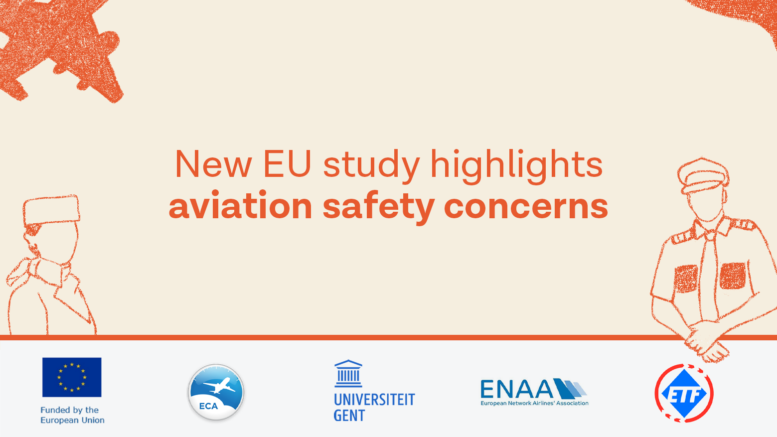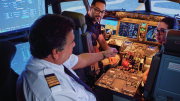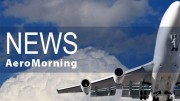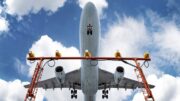EU study highlights aviation safety concerns linked to regulatory social gaps
Brussels | Ghent 1 Oct 2025 – A pilot or cabin crew’s contract shouldn’t be a safety risk but too often, it still is. A major new EU study warns that precarious jobs in aviation are undermining both the well-being of crew and the safety culture of airlines. Ten years after Ghent University’s landmark 2015 study revealed the rise of “atypical” pilot contracts, the follow-up report shows that insecurity, fatigue, and stress are now spread across the entire industry.
The new report, UGent 2.0 – Evolving Social Challenges for Aircrew and the Need for Regulatory Response, funded by the European Commission, draws on responses from thousands of pilots and cabin crew across more than 100 airlines in 2024.
The study found that the share of atypically employed aircrew in Europe is 10.3% (including 5.8% self-employed), with most of these workers concentrated in airlines providing wet-leasing services and low-cost carriers. Atypically employed crew continue to face higher job insecurity, weaker union protection, and reduced willingness to report fatigue and safety risks. More than 40% of crew say their contract influences their ability to make critical safety decisions, while 35–45% admit they avoid reporting fatigue or health issues out of fear for their careers. Shockingly, over 10% openly admit they do not report safety incidents at all.
Crucially, the study warns that challenges once limited to atypical contracts now affect the sector as a whole. Even directly employed staff at legacy carriers report rising stress linked to scheduling, fatigue, and mental health. Cabin crew – included in the survey for the first time – are especially vulnerable. In addition, younger staff report the highest stress levels and the weakest support structures. Across the board, a majority of respondents describe their airline as dehumanising, treating crew as numbers, not professionals.
Prof. Dr. Yves Jorens & Dr. Lien Valcke, authors of the study, revealed the results at a Conference in Ghent (Belgium), which took place on 26 September. Prof Jorens stated: “Labour conditions are no longer just a social issue – they have an impact on safety, well-being, and fatigue that are all interrelated! Without fair and stable employment, we cannot sustain a safe and resilient European aviation sector.”
The report also points to ongoing loopholes in EU legislation. More than 1 in 10 of the aircrew personnel – and in some cases over a third – report that their official home base (according to their contract) does not align with their operational reality. This raises serious concerns about abusive avoidance strategies regarding tax, social security and other social and employment rules.
Crews based in Eastern Europe report particularly weak safety cultures, while wet-leasing operators, though a small share of the workforce, account for nearly a third of the most serious contractual inconsistencies.
To address these challenges, the authors call for urgent EU-level measures to strengthen employment protection, enforce home base rules, integrate well-being into safety management, and enhance collective representation so that all crew – especially the most vulnerable – have a voice in shaping their working lives. As the European Commission is currently assessing the revision of Regulation (EC) 1008/2008 – the so-called Air Services Regulation – this would provide an opportunity to address some of the regulatory flaws, e.g., by including a clear definition for home base and operational base.
The UGent 2.0 study was conducted by Ghent University in cooperation with the European Cockpit Association (ECA), the European Transport Workers’ Federation (ETF), and the European Network Airlines Association (ENAA), with funding from the European Commission.
Source: European Pilots










Be the first to comment on "EU study highlights aviation linked to regulatory social gaps"